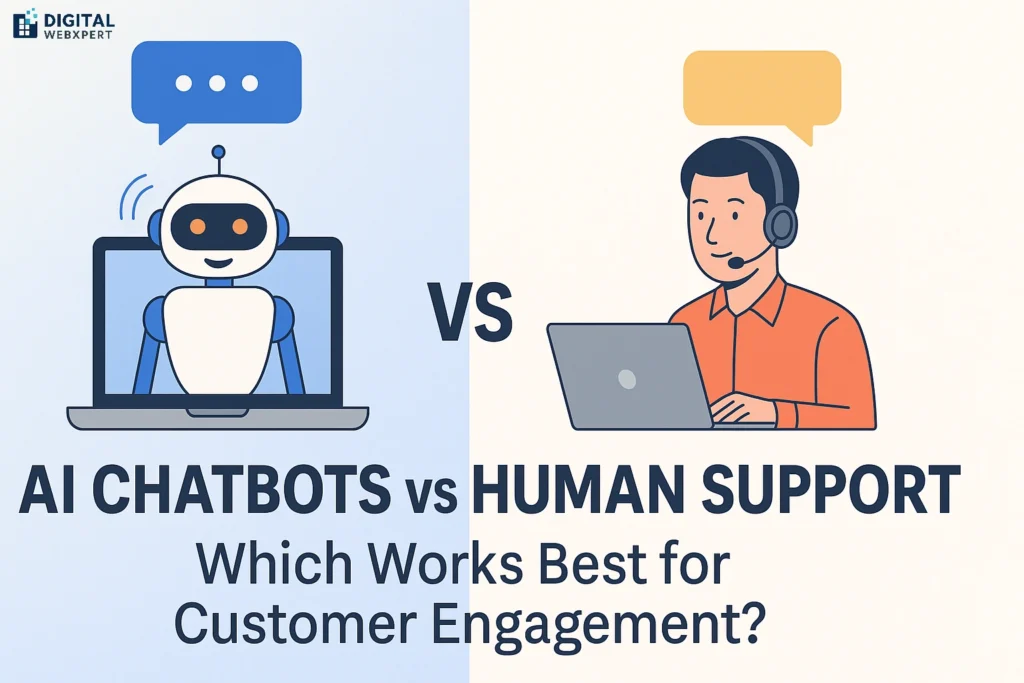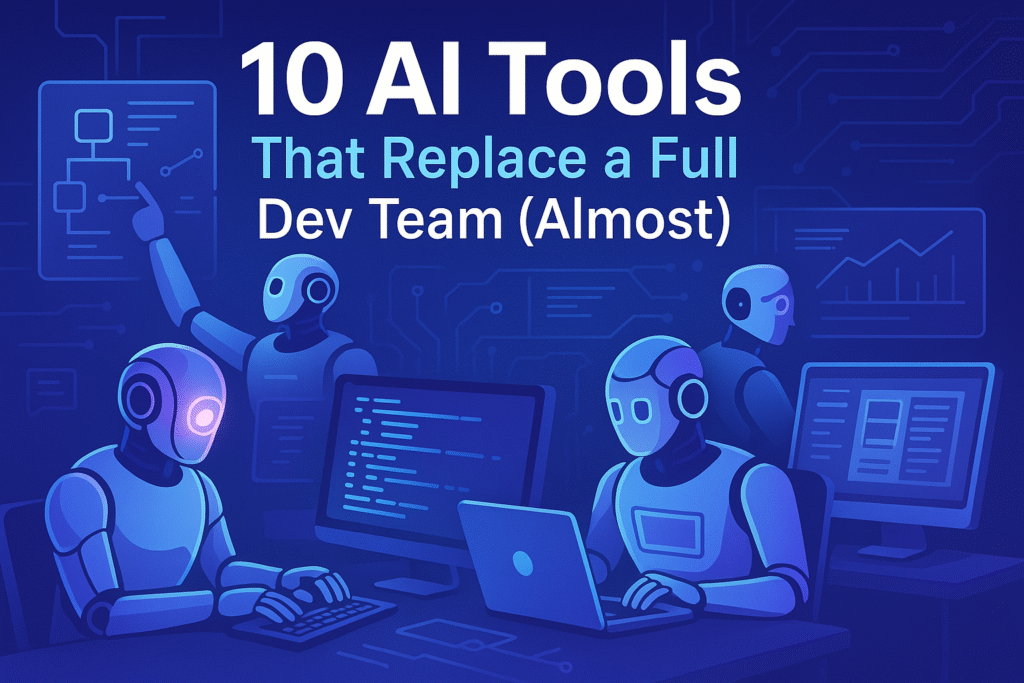In today’s fast-paced digital world, customer engagement can make or break a business. From e-commerce stores to B2B service providers, every brand faces the challenge of keeping customers satisfied, engaged, and loyal. Traditionally, human agents have been the face of customer support. But with the rise of AI chatbots, businesses are rethinking how to deliver 24/7 service while keeping costs under control.
So, the question remains: AI chatbots vs human support – which works best for customer engagement? Let’s break it down.
What Are AI Chatbots?
AI chatbots are intelligent virtual assistants powered by artificial intelligence, machine learning, and natural language processing (NLP). They can:
- Respond instantly to customer queries
- Handle repetitive tasks (like order tracking or FAQs)
- Operate 24/7 without breaks
- Learn from interactions to improve over time
They are increasingly popular in web design, app development, and eCommerce platforms, where quick and efficient responses drive higher conversions.
What Is Human Support?
Human support refers to customer service handled by real agents through chat, phone, or email. Unlike bots, humans bring:
- Empathy and emotional intelligence
- Creative problem-solving
- The ability to handle complex queries
- Personal connection that builds brand trust
While it may be more resource-intensive, human support plays a critical role in maintaining customer loyalty and satisfaction.
AI Chatbots vs Human Support: Key Comparison
1. Speed & Availability
- AI Chatbots: Provide instant responses 24/7, reducing wait times.
- Humans: Limited by working hours, breaks, and workload.
👉 Winner: AI chatbots for speed and availability.
2. Cost Efficiency
- AI Chatbots: Reduce staffing costs by automating repetitive tasks.
- Humans: Require salaries, training, and scaling costs.
👉 Winner: AI chatbots for affordability and scalability.
3. Customer Experience & Empathy
- AI Chatbots: Efficient but limited in emotional understanding.
- Humans: Can empathize, reassure, and adapt tone based on context.
👉 Winner: Human support for emotional engagement.
4. Handling Complexity
- AI Chatbots: Great for FAQs and simple processes, but struggle with multi-layered queries.
- Humans: Skilled in managing unique or unexpected problems.
👉 Winner: Human support for complex issue resolution.
5. Consistency & Accuracy
- AI Chatbots: Provide consistent answers based on programmed knowledge.
- Humans: Quality may vary depending on training, mood, or workload.
👉 Winner: AI chatbots for consistency.
6. Personalization
- AI Chatbots: Can personalize based on data (e.g., “Hello John, your last order was…”).
- Humans: Personalize through empathy, conversation flow, and cultural understanding.
👉 Winner: Tie – chatbots excel in data-driven personalization, humans in emotional personalization.
7. Scalability
- AI Chatbots: Can handle thousands of chats simultaneously.
- Humans: Limited to one customer at a time.
👉 Winner: AI chatbots for scalability.
When to Use AI Chatbots
- E-commerce stores for product recommendations
- SaaS businesses for onboarding support
- FAQs, ticket updates, and order tracking
- Lead generation and website chat support
When to Use Human Support
- Handling escalations and complaints
- B2B negotiations and high-value clients
- Emotional or sensitive queries
- When building long-term brand relationships
The Future: AI + Human Hybrid Model
The best solution isn’t AI vs Human, but AI + Human. Businesses that integrate both can:
- Use chatbots to filter and handle routine tasks
- Transfer complex cases to human agents
- Reduce costs while improving engagement
- Offer seamless 24/7 customer service
For example, a chatbot can greet customers on your website or mobile app, solve 70% of queries instantly, and escalate the rest to a human agent. This creates the perfect balance of efficiency and empathy.
Conclusion
So, which works best for customer engagement?
- If your goal is speed, scalability, and cost efficiency → AI chatbots lead the way.
- If your focus is empathy, relationship-building, and complex issue handling → human support is irreplaceable.
- But the real winner is the hybrid model that combines both for maximum impact.
In 2025 and beyond, businesses that adopt AI chatbots alongside human support will stand out, delivering a customer experience that’s fast, personal, and future-ready.



